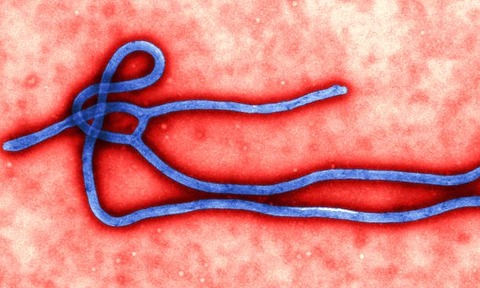Editor's comment: The end of Ebola?
22 Oct 2014

As both Senegal and Nigeria are declared Ebola-free, is the deadly virus that has swept through much of West Africa finally being eradicated?
Over the course of the last week, the World Health Organisation (WHO) has confirmed that cases of Ebola in both Senegal and Nigeria have been contained and a 42-day incubation period passed without any new cases being reported.
Ebola, which usually incurs a 21-day incubation period, has spread across western Africa in recent months, taking the lives of over 4,500 people.
Cases of Ebola have also been reported in countries such as Spain and the US, but there has been no widespread outbreak outside of the west-African nations that have been most severely hit by the disease.
To eradicate its Ebola epidemic, Nigeria rapidly established an Emergency Operations Centre, which limited the death toll to six, while the Senegalese government activated a National Crisis Committee and maintained a state of ’high-alert’ until the country was declared Ebola-free on the 17th October.
Senegal’s response to the crisis was such that only one person within its borders contracted Ebola, and its death toll remains at zero.
But aside from well-executed action plans and committee interventions, is there an actual cure for Ebola on the horizon?
The short answer is, “possibly”.
There have been several reports that pharmaceuticals firms are “exceptionally close” to producing an effective cure for Ebola, and many organisations claim to be undertaking clinical trials.
GlaxoSmithKline (GSK), for example, says its investigational vaccine “has shown promising results” in preclinical studies, and fully expects phase one human trials to be equally successful. GSK says frontline humanitarian workers in Sierra Leone, Guinea and Liberia could be given a vaccine in early 2015.
“Vaccine development normally takes 10 or more years. To be able to go from the first safety trials to testing whether a vaccine works and actually using it to help control an outbreak of a horrible disease - all in the matter of weeks and months - that would be something to celebrate,” said Adrian Hill, director of the Jenner Institute, University of Oxford, and lead investigator of a UK safety trial of the GSK/NIH Ebola vaccine.
Likewise, news emerged this morning that healthcare giants Johnson & Johnson are set to collaborate with GSK to produce over 1 million doses of its two-part Ebola vaccine.
“Ebola is a significant and growing threat to the people of West Africa and it has the potential to impact people around the world. We are committed to bringing our science, technology, innovation and resources to help prevent and treat this deadly disease,” said Paul Stoffels, chief scientific officer of Johnson & Johnson.
Elsewhere, the Canadian public health agency announced phase one human clinical trials of an Ebola vaccine which it said has “shown great promise” in animal research. If the human trials are successful, the Canadian government hopes to gain initial approval for the vaccine’s use in West Africa.
Perhaps most effective in the fight against Ebola, however, is possibility of an ’Ebola serum’ made from the blood of those that have already survived the disease.
The BBC reported yesterday that a serum could be made available “within weeks” to treat people in Liberia.
WHO assistant director general for health system and innovation Marie Paule Kieny said: “There are partnerships which are starting to be put in place to have capacity in the three countries to safely extract plasma and make preparation that can be used for the treatment of infective patients.
“The partnership which is moving the quickest will be in Liberia where we hope that in the coming weeks there will be facilities set up to collect the blood, treat the blood and be able to process it for use.”
If successful, both the proposed serum and the pending vaccines, coupled with effective disease containment strategies, could be used to eradicate the current Ebola crisis, and any subsequent outbreaks, anywhere in the world.

